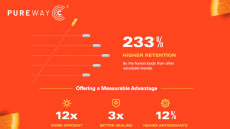Fat-soluble vitamin status linked to self-reported health

implications of these modifiable nutrients on health status are warranted
Fat-soluble vitamins A, D and E have a wide array of functions, including important immunomodulatory and inflammatory, and antioxidant-related processes. Low micronutrient status, as measured in plasma, has not only been linked to specific diseases but also to poorer general health status13-15. For instance, low plasma α-tocopherol concentrations (a marker for vitamin E status) in older adults have been associated with poor physical and mental health and with greater inflammation14.
In addition, the Chinese longitudinal healthy longevity survey (CLHLS) and US National Health and Nutrition Examination Surveys (NHANES) observed older adults to have lower serum 25-hydroxyvitamin D concentrations when their self-rated health status was categorised as poor13 .
A recent analysis from the 2005–2016 NHANES including 26,282 adults17 illustrated widespread dietary deficiencies in fat-soluble micronutrients.
SRH has recently been reported to be a significant predictor of mortality in participants with no chronic conditions15. On account of the biological functions of the fat-soluble vitamins A, D and E, the authors of the current study hypothesised that lower plasma concentrations of these micronutrients are a prevalent risk factor for poorer health status.
Thus, the aim of the current study was to assess whether plasma concentrations of vitamins A, D and E were associated with self-rated health.
The study
The study involved a sample of 3158 participants (52% female, aged between 35–75 years) from the MARK-AGE population study, which aimed to identify a set of biomarkers of ageing22-24.
Descendants from nonagenarians (people aged between 90 and 99) were recruited into the second study group. These 537 men and women were offspring of nonagenerian subjects who had been recruited in the GEHA study (Genetics of Healthy Aging25). Thus this second group was named GO (GEHA offspring). Thirdly, 311 spouses from the recruited GO participants, formed the SGO group (spouses of GO), these subjects were enrolled as a lifestyle control group.
Cross-sectional data were collected via a standard self-report five-point scale questionnaire rating physical health.
A comorbidity index was subsequently computed by counting the total number of self-reported current health conditions. The conditions included: elevated blood pressure or cholesterol, heart-related conditions (e.g. angina, heart failure), autoimmune diseases, diabetes, thyroid disease such as hypothyroidism or hyperthyroidism, osteoporosis, arthritis, liver or kidney-related conditions, respiratory conditions, neurological conditions, memory-related or mental health conditions, vision or hearing impairments, chronic pain such as back or leg pain.
Questionnaire-based data also captured sociodemographic factors.
Plasma measurements of three fat-soluble vitamins were chosen for inclusion: serum 25- hydroxyvitamin D, which is the accepted status marker for vitamin D. For vitamin A, retinol and for vitamin E, α-tocopherol were analysed, since they represent the greatest proportion of these vitamins in blood.
Plasma 25-hydroxyvitamin D and retinol concentrations were significantly lower in participants that rated health status as fair/poor as compared to the excellent, very good, and good ratings (vitamin D ) and excellent and very good ratings (retinol; see Figure 1 A, B). No significant differences were observed for α-tocopherol (Figure 1 C).
The authors note that the study is limited by its cross-sectional design and the fact blood sampling were taken at one time point only. The lack of data on physical activity and household income are also confounders that were not controlled for.
The results might not be applicable to other study populations, since the study included a group of participants that were offspring of nonagenarians and thus are considered genetically privileged. In this regard, the GO group had the highest percentage of participants rating health status as excellent. Also, for the present analysis, data from participants taking supplements were included as a predictor variable, but the type of supplements taken was unknown.
The large sample size is a strength of the study, as is the SRH which has been reported to accurately reflect objective health status 49 .
The report concludes: "Multiple logistic regression identified both lower plasma vitamin A and D status as being independently associated with fair/poor SRH. Since poorer SRH has been associated with increased mortality, even in the absence of chronic disease, further insights into the long-term implications of these modifiable nutrients on health status are warranted."
Source: British Journal of Nutrition
Stokes, C., Weber, D., Wagenpfeil, S., Stuetz, W., Moreno-Villanueva, M., Dollé, M., Grune, T.
"Association between fat-soluble vitamins and self-reported health status: a cross-sectional analysis of the MARK-AGE cohort"
doi:10.1017/S0007114521004633











